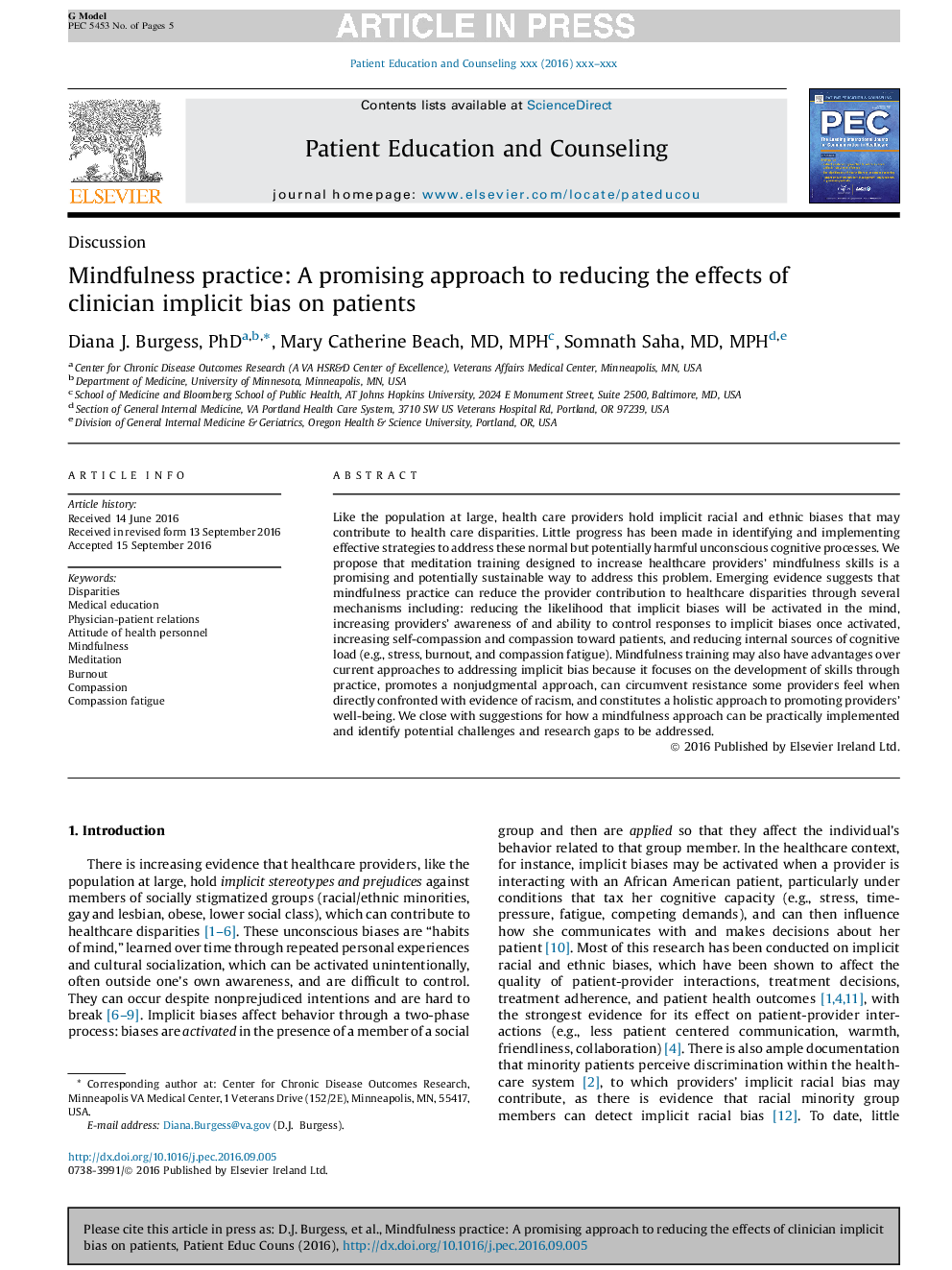| Article ID | Journal | Published Year | Pages | File Type |
|---|---|---|---|---|
| 5681998 | Patient Education and Counseling | 2017 | 5 Pages |
Abstract
Like the population at large, health care providers hold implicit racial and ethnic biases that may contribute to health care disparities. Little progress has been made in identifying and implementing effective strategies to address these normal but potentially harmful unconscious cognitive processes. We propose that meditation training designed to increase healthcare providers' mindfulness skills is a promising and potentially sustainable way to address this problem. Emerging evidence suggests that mindfulness practice can reduce the provider contribution to healthcare disparities through several mechanisms including: reducing the likelihood that implicit biases will be activated in the mind, increasing providers' awareness of and ability to control responses to implicit biases once activated, increasing self-compassion and compassion toward patients, and reducing internal sources of cognitive load (e.g., stress, burnout, and compassion fatigue). Mindfulness training may also have advantages over current approaches to addressing implicit bias because it focuses on the development of skills through practice, promotes a nonjudgmental approach, can circumvent resistance some providers feel when directly confronted with evidence of racism, and constitutes a holistic approach to promoting providers' well-being. We close with suggestions for how a mindfulness approach can be practically implemented and identify potential challenges and research gaps to be addressed.
Keywords
Related Topics
Health Sciences
Medicine and Dentistry
Medicine and Dentistry (General)
Authors
Diana J. PhD, Mary Catherine MD, MPH, Somnath MD, MPH,
